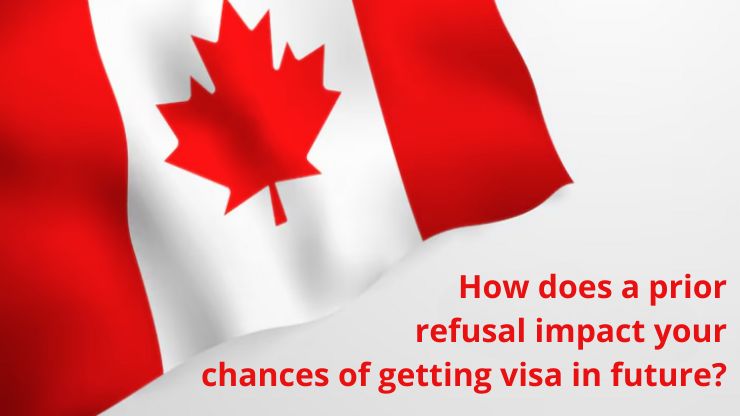
Effect of Previous Visa Refusal on Future Visa Applications
A visa refusal will likely affect the future visa application of a candidate. Having a good visa history without refusal or cancellation is an important factor that the government considers while processing the applications.
However, the prior refusal doesn’t mean that the applicant can’t apply for the visa in the future.
Immigration Authorities always analyze the changes in the previous and the new application of the candidate. If they doesn’t feel any changes in the situation, then there are lesser chances of visa approval. They also considers the documents & evidence provided by the applicants in their favor.
It is also advisable to thoroughly read the specific guidelines and the requirements of the country you are applying to.
While applying for a new visa application after refusal a candidate must take care of the following factors:
- Carefully review the reasons for prior refusal. It helps to rectify the mistakes that have been made in previous applications and to make the new file stronger with supporting documents.
- The length of time between the prior refusal and the new application should make a positive impact on the application in terms of financial stability or a stronger purpose of travel for the applicant.
- Providing genuine evidence of strong ties with the home country such as family ties, employment, property, etc. can strengthen the application. These ties will prove that the applicant will return to his home country after the validity of the visa.
- Hiring an Immigration Consultant is highly recommended for filing your visa application. They have expertise in immigration rules, regulations, and filing cases.
Niyama Immigration works with a team of migration agents registered with the Immigration Consultants of Canada Regulatory Council (ICCRC) for Canada and the Migration Agents Registration Authority (MARA) for Australia. Our team of experienced immigration advisors ensures that we recommend the best pathway for your case. We ensure that all aspects of your visa application are completed correctly and guide you on all the necessary supporting documents.
Visa refusals can occur for various reasons, as the decision is based on the specific information provided by each applicant. Here are some most common reasons for visa refusals:
Insufficient Supporting Documents: One of the most common reasons for visa refusals is not having supporting documents. It includes:
- missing or incomplete forms,
- failure to provide required financial documents,
- lack of proof of accommodation,
- or insufficient evidence of ties to the home country.
Lack of Financial Stability: Many visa applications require applicants to demonstrate that they have sufficient funds to cover their expenses during the stay. If the applicant fails to provide convincing evidence of financial stability, such as:
- bank statements,
- income proof,
- or sponsorship details, it may result in a visa refusal.
Incomplete Information: Providing incomplete or inaccurate information can lead to a visa refusal. It is important to:
- carefully fill out all application forms,
- provide accurate details,
- and ensure consistency in the information provided across different documents.
Failure to meet Eligibility Criteria: All the visa categories have their own eligibility criterias that applicants must meet. If an applicant fails to fulfill the criteria, such as:
- not having a valid reason for travel,
- not meeting minimum age requirements,
- or lacking the necessary qualifications or skills, it can result in a visa refusal.
Concerns about Violation of Immigration Rules: The authorities assess whether an applicant poses a risk of overstaying or violating the immigration laws of the destination country. If there are doubts about an applicant’s intent to return to their home country or if there is a previous history of visa violations, it can lead to a visa refusal.
Lack of strong ties to the home country: To ensure that applicants have a genuine intent to return to their home country, immigration authorities often consider an applicant’s ties to their home country. If an applicant fails to demonstrate strong ties, such as family, employment, property ownership, or other commitments, it may raise concerns about the intention to stay in the destination country.
Security and Health Concerns: Immigration authorities prioritize the security and health of their country. If there are security concerns related to an applicant’s background or if there are health issues that could pose a risk, it can result in a visa refusal.










